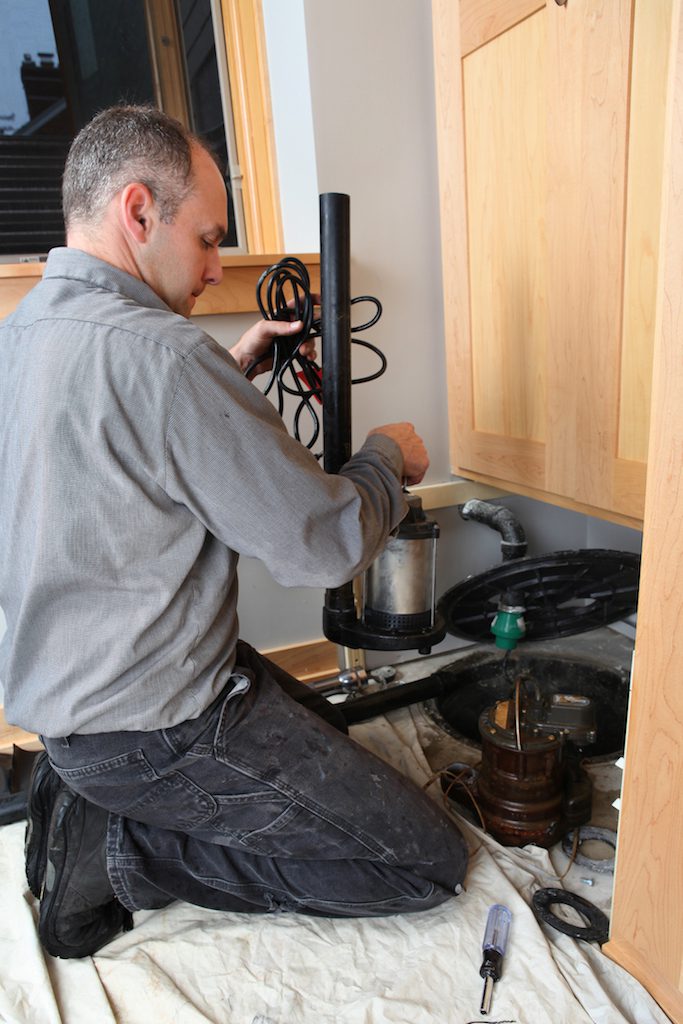Depending where your home is located and the age of your home, you probably have a sump pit below your foundation. In fact, in places where gravity drainage just isn’t going to work, the Ontario Building Code requires a sump with an automatic pump to be installed. You may also decide to have a pump installed if you find indications that your basement is starting to have water problems after a big storm or in the spring.
Sump Pump Basics
So, how does a sump pump work? It pulls the water that has collected in the sump pit into the sewer, drainage ditch, or dry well. It works when there has been excessive rainfall, winter melt off or elevated ground water. The whole purpose is to keep water out of your basement. The automatic pump has a float that, once the water reaches a certain level, it activates the pump to remove the water.
Most modern pumps run on electricity with a battery back up incase of a power failure. Other issues that may cause a pump to fail is if there is a build up of debris; cleaning out any debris is part of regular maintenance of a sump pit. You can also have problems in the winter or early spring months with freezing pipes that can cause your pump to stop working properly.
Because, along with your pump directing water away from your home, your neighbours are likely to be doing the same. You need to be sure you are not over-taxing the sewer drains in your area. You are also in risk of sewer back ups if your sump pump drains into the sewer system! It might be wise to disconnect your pump from the sewer system and direct it into a drainage ditch away from your home.
Sump pumps do wear out. The average life span for a sump pump is 10 years. Part of your maintenance check should include testing the whole system, including all the switches and the level of the floater; clearing any debris, checking the battery back-up if you have one (or installing one if you don’t). You can get this all done by a professional who can service your existing pump or recommend the installation of a new pump.
Do you need one?
How do you know if your home needs a pump? Evidence of water in your basement is a clear indication that you need to have work done to correct the problem. Even if it is not obvious puddles you see but damage to your flooring, drywall or wall coverings that is the result of moisture, you need someone to conduct a waterproofing project in your basement. Telling too, is a dank, musty smell when you go down the stairs. Mildew and mould have their own special odour that is the result of bacterial spores growing — often unseen — when moisture has been allowed to sit for a long period of time.
Waterproofing specialists, such as those from City Wide Group, will inspect your basement and get to he root of the problem. They’ll give you an assessment of the situation and an estimate of how to address it.










